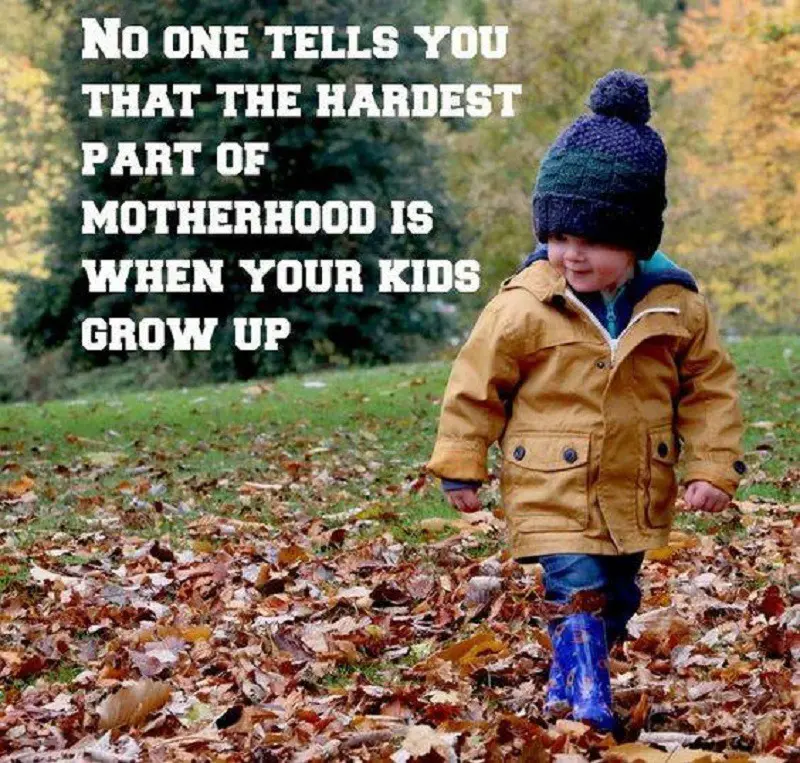
You know that stage in pregnancy when you’re reading all the books, articles, and blog posts you can get your hands on? The no-holds-barred kind that tell-it-like-it-is: 10 Pregnancy Side Effects No One Likes to Talk About. 7 Things No One Tells You About Having a C-section. The Sh!t No One Tells You: A Guide to Surviving Your Baby’s First Year. The entire What to Expect series.
No matter how much reading you do, though, and no matter how hard the authors (or your family or friends) try, there is no way to really, truly be prepared for parenting. Once the baby actually arrives, every time you think your well-prepared self and your baby have established a routine—BAM! ROUTINE CHANGE!
Then, they stop being portable, adorable lumps and start becoming little people with very strong opinions. At some point, though, you really to get into whatever a “routine” looks like for your family. You learn your child’s personality, their joys, and their triggers. Things get sort of comfortable and sort of predictable. You do actually know what to expect a lot of the time.
Then.
Just when you really think you’re getting the hang of this parenting thing, something happens. Like, oh, I don’t know: the end of preschool maybe? I’m not a particularly sentimental person, but damn! The end of preschool was intense, and that was not what I was expecting.
Clearly, it’s not like the end of something like preschool is usually a surprise. You’ve known for a year (or four) that it’s coming, but when it gets there, you realize you are totally and completely unprepared for the last day.
So, let me be to you parents of current preschoolers what all those tell-it-like-is articles were to pregnant women. Let me “prepare” you.
Let’s get this out of the way right now: you will never be prepared. Moving on.
If you chose the right preschool for your family, you’re going to miss it, probably more than you anticipate. The right school is going to give you the opportunity to watch your child grow over their time there. If you’re really lucky, you’ll be at a school that uses photos in their evaluations and you can witness this growth in a concrete way. If a cooperative preschool works for your family, you will also have had the opportunity to watch your child’s growth in-person.
The teachers and staff will become such an important part of your life—
even if your child is only in school for a few hours a couple of days a week. These are people who know your child and care about them. They know about your family life and stresses outside of school. You share your behavioral and developmental concerns with them and work together on solutions, if needed. You celebrate your child’s developmental milestones and emerging skills together. In the case of my daughter vs. a newly hatched chick behind glass, you also apparently learn about your child’s greatest fears together… Even over just one school year, you develop a lot of shared history.
Your child is going to miss their friends.
Yes, you can still do playdates, but depending on where everyone lives, you’re probably going to separate elementary schools and will develop new social circles. Regardless, your child will see their friends less often and less regularly. I live in northern Virginia, just outside of Washington, DC; there’s a pretty sizeable military population here, and about a quarter of my daughter’s class is moving this summer due to military reassignment. That’s going to make keeping in touch even more of a challenge.
You will miss the other parents.
Your only contact with them may be in the hallway at drop-off and pick-up, but these people make up part of your family’s village. And if you have parents in the classroom interacting with your child every day, they’re even more than that.
These are the people you trust to care for your child in your absence. The ones who will provide a meal after you’ve had surgery, or a playdate when you’re working on deadline, or a ride to a party when you’re both working and can’t take the kid. They’re the ones who will take your kid home with them when there was an accident on the way to pick-up and you’re stuck in traffic for who knows how long. (We’re a trusting bunch—what can I say?)
Based specifically on our preschool experience, I’m going to miss the emphasis on learning through play and the opportunities that the teachers took around spontaneous teachable moments. I worry about sending my daughter into the land of No Child Left Behind—excuse me: Every Student Succeeds—and standardized testing.
I worry that she won’t have time for gym or recess or arts or music, or that she won’t get outside enough. I worry about the fact that she’ll catch the bus at 8:42 AM and get home at 4:35 PM. I worry about what class looks like when there’s only one adult with more students. I worry that being forced to teach to the test will result in killing her love for school and learning.
I worry about having to make new parent friends, create a new village (or at least invite new residents into my existing village), and learn a new structure and how things work in a new place. How will I feel when I’m not nearly as involved in her day-to-day schooling?
My husband did the classroom co-oping—trust me, you do not want me in a roomful of preschoolers—but I picked her up at the classroom most days and we got weekly updates and lesson plans from the teachers. I was room parent our first year and sat on the Board of Directors for the next two years. And frankly, I’m just a tad bit pissed that I spent three years doing all of the above only to have to start all over again! This is hard work for a shy introvert! What role can I play as she moves to a new school? And as a stay-at-home mom, what will I do once she’s in school full-time?
So. much. change.
Nothing you do will prepare you for it. To watch your child say goodbye to a teacher that she spontaneously hugs and says “I love you!” to. To say goodbye to a teacher who kept tabs on your child even when they weren’t in the same classroom anymore. To leave behind a teacher who cried as much as the parents on the last day.
To say goodbye to a teacher who knows your child only from the extended day program, but who really knows you child. To know you will no longer have regular contact with a teacher who means so much to your child that your child picked out jewelry for your Mother’s Day gift based on jewelry the teacher wears. To know that people who have nurtured your child and watched her grow over three years won’t have the chance to continue to see who she’s becoming.
It’s tough. And I don’t know for sure, but I bet it’s going to happen at pretty much every school transition point. I guess at least now I have an idea of what to expect.
